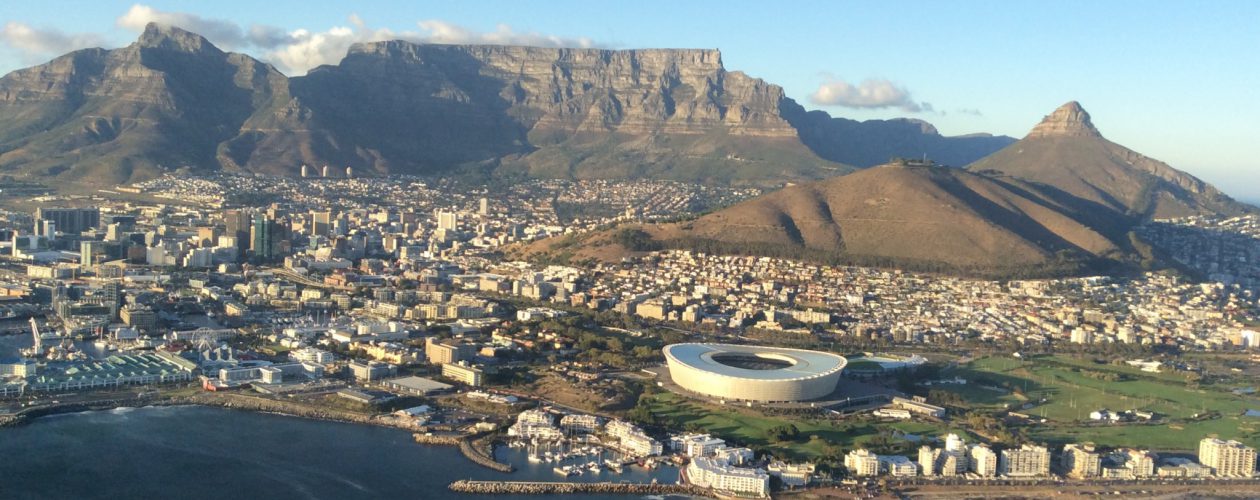Come and enjoy Cape Town and the Western Cape, but be mindful of the current water shortage. This is the message we are continuing to convey to our valued clients. We are encouraging travelers to maintain their current travel plans and/or include a visit to Cape Town for future travel, with the knowledge that there will be minimal impact on the enjoyment of their holiday in this spectacular city.
Cape Town and the Western Cape are very much open for business in spite of the current drought. Travelers continue to arrive to the ‘Mother City’, which offers a significant breadth and depth of experiences and exceptional beauty. However, as beautiful as it is, the Western Cape is a water-scarce part of the world (much like Southern California and Western Australia) and is vulnerable to the effects of climate change and is susceptible to periodic droughts.
At present the Western Cape (Cape Town and its surrounds) is experiencing a significant drought. This is a 1 in 1000-year occurrence. To counter the short-term effects of the drought and the possibility of running out of water, the City has put in place a number of initiatives to increase the supply of water and make provision for extreme water shortages. Specifically, the hotels that cater to our clients have all proactively undertaken measures to ensure that guests have adequate water for drinking and all personal hygiene needs. They will be asking clients to forgo having their linens changed daily and to use showers instead of baths. However, it is important to note that in the peak tourism months, tourist water consumption represents less than 1% of total water usage and efforts are being made by the big water consumers – agriculture and industry – to severely curtail their usage.
…but be mindful
Below average rainfall over a number of years has forced everyone who lives in or visits Cape Town to rethink their water usage behaviors. Responsible consumption of water is the new normal – not just in Cape Town but in many other water-scarce places in the world.
South African Tourism association has committed that, “In the event of what the City of Cape Town refers to as ‘Day Zero’, there will be available water for tourists and locals’ critical needs. This is considered to be water for personal hygiene and consumption. ‘Day Zero’ is when the City of Cape Town cuts the regular flow of water. ‘Day Zero’ is a projected date that is entirely dependent on current rates of water consumption: if all stakeholders adhere to the required water savings target, ‘Day Zero’ can be avoided.” However, tourists would still be able to enjoy the diverse and world-class experiences Cape Town and the Western Cape has to offer. In fact ‘Day Zero’ has continued to be pushed back, originally from April to July and it’s now likely there may be no need for a shut down of municipal water services.
Cape Town is actively pursuing opportunities to increase the supply of water available to Cape Town. These include the use of ground water, reuse, desalination (temporary and permanent), swaps/purchase of water from agriculture and other (typically) small sources such as springs. These new water supplies are important for water security going forward and will make a meaningful contribution to supply in the longer term. Cape Town has already reduced its demand from a peak of 1200 Ml/day in 2015 to around 600 Ml/day. This is a phenomenal reduction, in line with the best in the world, but we can and must reduce demand further if we are to avoid Day Zero.
Frequently asked questions
If tourists visit Cape Town / The Western Cape will there be water?
•Yes there will be water for tourists’ essential daily needs. These needs are considered to be access to drinking water and for personal hygiene.
How widespread is the drought in South Africa?
•The drought and resultant water restrictions are mostly isolated to parts of the Western Cape Province – particularly the City of Cape Town and surrounding areas.
•Places like The Cape Overberg and The Garden Route are less impacted by water restrictions. It’s important to remember that South Africa in general is a water-scarce country.
Will tourists have access to drinking water?
•Yes.
Will tourists be able to bath, shower or use a swimming pool?
•At present, tourists will be able to shower and maintain daily hygiene. Mandated guidelines suggest a shower of no longer than 2 minutes. The use of baths is entirely discouraged. Some swimming pools at hotels have been converted to salt (ocean) water.
•In the eventuality of Day Zero, it will be necessary to contact your service provider to determine what measures are in place to continue the supply of water.
Will restaurants and bars still be in operation?
•In the event of ‘Day Zero’ – yes. Many parts of the hospitality industry have proactively implemented water savings and water augmentation solutions to ensure ongoing availability of water in their establishments.
•Restaurants and bars are not currently negatively influenced but must still comply with water restrictions.
Which tourism activities could be impacted?
•Tourists will still be able to access and enjoy primary tourism attractions such as our iconic Table Mountain, Cape Point and Kirstenbosch Botanical Gardens.
•Specific river-based experiences may be impacted.
Will emergency services still function in the event of ‘Day Zero’?
•Yes. All critical emergency services (hospitals, clinics, police services) will continue to function.
Will major events still be staged?
•Yes. All major events have proactively put in place plans to ensure that events have a zero or heavily reduced water footprint e.g. bringing in water from outside of Cape Town / the Western Cape.
Cape Town Water
